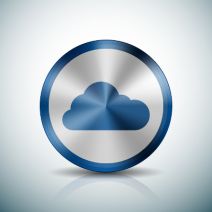SMART Blog
 It’s been proven that the cloud is ideal for improving the way that agencies just like yours are handling their day-to-day operations, bringing both an increase in profits, net growth, and staff productivity. So, naturally, small businesses are moving in the direction of taking advantage of the cloud for their computing needs.
It’s been proven that the cloud is ideal for improving the way that agencies just like yours are handling their day-to-day operations, bringing both an increase in profits, net growth, and staff productivity. So, naturally, small businesses are moving in the direction of taking advantage of the cloud for their computing needs.
 The cloud might be a great new data storage resource for independent agencies to get more done during the workday, but it’s far more than that. Uses for the cloud are constantly evolving to adapt to a shifting online environment. It’s now an indispensable tool for the serious modern business. The cloud is changing the way businesses handle their data and information, but it can do so much more.
The cloud might be a great new data storage resource for independent agencies to get more done during the workday, but it’s far more than that. Uses for the cloud are constantly evolving to adapt to a shifting online environment. It’s now an indispensable tool for the serious modern business. The cloud is changing the way businesses handle their data and information, but it can do so much more.
 How many of your employees have a smartphone? The answer is probably most (if not all) of them. In the United States alone, nearly two-thirds of adults own a smartphone, and many of them depend on the device to do much of their personal computing. As a result, many workers, even if instructed not to, will use their devices while at your office. This is why many companies have put in place a comprehensive Bring Your Own Device (BYOD) strategy.
How many of your employees have a smartphone? The answer is probably most (if not all) of them. In the United States alone, nearly two-thirds of adults own a smartphone, and many of them depend on the device to do much of their personal computing. As a result, many workers, even if instructed not to, will use their devices while at your office. This is why many companies have put in place a comprehensive Bring Your Own Device (BYOD) strategy.
 Businesses all over the world are starting to implement two-factor authentication. That's because the value of passwords is expected to depreciate as hackers find ways to punch holes in even the most comprehensive security solution. In response, users are being forced to find other means to increase their security.
Businesses all over the world are starting to implement two-factor authentication. That's because the value of passwords is expected to depreciate as hackers find ways to punch holes in even the most comprehensive security solution. In response, users are being forced to find other means to increase their security.
 We talk about a lot of frightening technology scenarios for businesses: data loss, identity theft, and expensive hardware failures that can inflict substantial downtime and, therefore, cripple the ability of your business to sustain operations. One industry that has changed the way they manage risk, specifically the potential failure of important security systems, is the nuclear power industry. Any business can learn how to mitigate disaster by looking into the specifics of the two most horrendous nuclear meltdowns in history: the meltdown at Chernobyl in 1986, and the tsunami-induced disaster at Fukushima in 2011.
We talk about a lot of frightening technology scenarios for businesses: data loss, identity theft, and expensive hardware failures that can inflict substantial downtime and, therefore, cripple the ability of your business to sustain operations. One industry that has changed the way they manage risk, specifically the potential failure of important security systems, is the nuclear power industry. Any business can learn how to mitigate disaster by looking into the specifics of the two most horrendous nuclear meltdowns in history: the meltdown at Chernobyl in 1986, and the tsunami-induced disaster at Fukushima in 2011.
 Cloud services are growing more common with small and medium-sized businesses, to the point where almost all businesses take advantage of the cloud in some way, shape, or form. However, an independent agency's specific cloud needs vary, and the same solution doesn’t work for everyone. Still, there are a few notable qualities that most businesses want for their cloud in 2016.
Cloud services are growing more common with small and medium-sized businesses, to the point where almost all businesses take advantage of the cloud in some way, shape, or form. However, an independent agency's specific cloud needs vary, and the same solution doesn’t work for everyone. Still, there are a few notable qualities that most businesses want for their cloud in 2016.
 With as many resources as you’ve invested in your company’s technology, you should do everything you can to protect it. An IT infrastructure that doesn’t have an Uninterruptible Power Supply (UPS) safeguarding its data, is putting the entire operation at risk. Here’s what you need to know about this important device.
With as many resources as you’ve invested in your company’s technology, you should do everything you can to protect it. An IT infrastructure that doesn’t have an Uninterruptible Power Supply (UPS) safeguarding its data, is putting the entire operation at risk. Here’s what you need to know about this important device.
 When one thinks about the Internet of Things (IoT), smart homes, smart cars, and mobile devices come to mind. While innovations like these are fueling the excitement behind the IoT, it’s actually the smaller, behind-the-scenes IoT devices that are poised to bring about the most significant change to our connected society.
When one thinks about the Internet of Things (IoT), smart homes, smart cars, and mobile devices come to mind. While innovations like these are fueling the excitement behind the IoT, it’s actually the smaller, behind-the-scenes IoT devices that are poised to bring about the most significant change to our connected society.
 If you are a technician and a network you are responsible for begins to go down because of unusually high traffic, there is a good chance you are experiencing a distributed denial of service attack, or DDoS. These attacks, which are extraordinarily difficult to prevent altogether, can be costly for a business.
If you are a technician and a network you are responsible for begins to go down because of unusually high traffic, there is a good chance you are experiencing a distributed denial of service attack, or DDoS. These attacks, which are extraordinarily difficult to prevent altogether, can be costly for a business.
 As of two weeks ago, Internet Explorer 8, 9, and 10, are no longer supported by Microsoft. That’s right; no more patches or security updates for IE. This makes continuing to use older versions of Windows a cause for concern. Perhaps this is for the best, but in light of this news, users of IE will want to either update to IE 11 or switch to a new browser.
As of two weeks ago, Internet Explorer 8, 9, and 10, are no longer supported by Microsoft. That’s right; no more patches or security updates for IE. This makes continuing to use older versions of Windows a cause for concern. Perhaps this is for the best, but in light of this news, users of IE will want to either update to IE 11 or switch to a new browser.
 The continuity of your business should be a major priority, especially considering how you and your employees rely on your business for their livelihood. But believe it or not, there are many organizations that don’t give a second thought to the preservation of their data and critical assets. Nonetheless, you need to pay proper attention to how your organization handles problems like natural disasters, data loss, hacking attacks, and other hazardous incidents.
The continuity of your business should be a major priority, especially considering how you and your employees rely on your business for their livelihood. But believe it or not, there are many organizations that don’t give a second thought to the preservation of their data and critical assets. Nonetheless, you need to pay proper attention to how your organization handles problems like natural disasters, data loss, hacking attacks, and other hazardous incidents.












